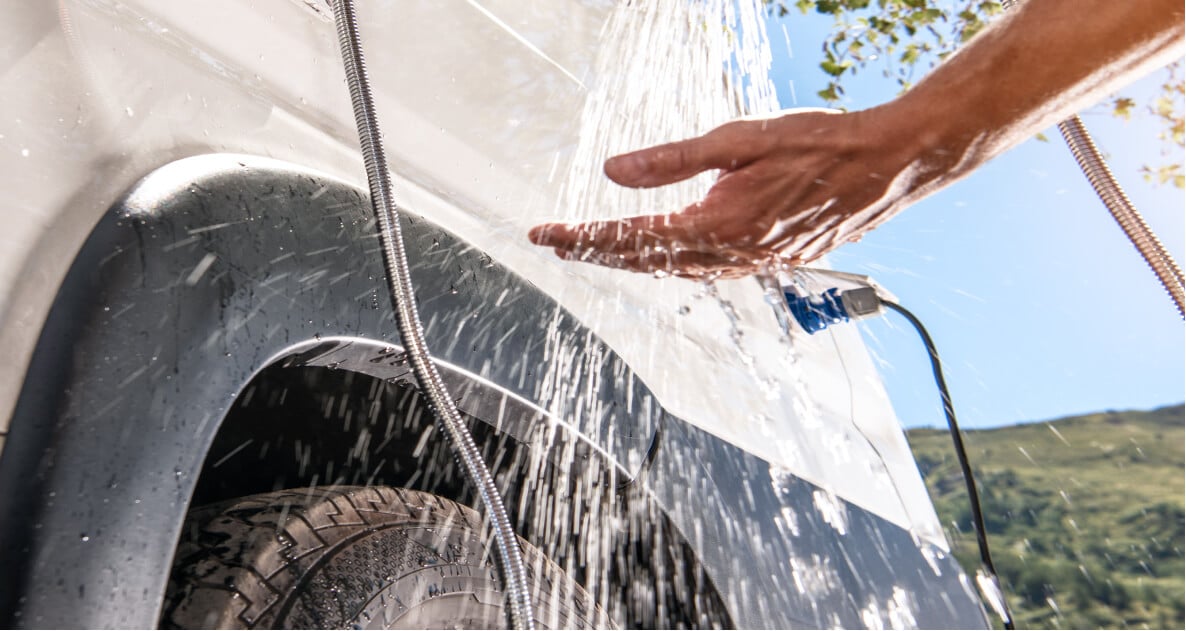What is the Best Anode Rod for Smelly Water?

Our response
If your water smells like rotten eggs, it’s likely due to a gas called hydrogen sulfide. This gas forms in your water heater tank during a process called electrolysis. The solution to this smelly water problem? Get the best anode rod for smelly water!
The Corro-Protec powered anode rod is the best anode rod to solve the smelly water once and forall. this powered anode rod is using a tiny bit of electricity to protect your tank from rusting. This also helps to reduce hydrogen sulfide gas, which causes that unpleasant sulfur smell in hot water. Corro-Protec rods last a long time, often even longer than your water heater. So, you’ll save time and money on maintenance and replacements making it the best anode rod for smelly water!
But there’s another choice: aluminum anode rods. These include aluminum-zinc alloy rods and are cheaper than powered rods. They do a good job in soft water conditions and can protect your tank from rusting too. But they might not completely get rid of the smelly water, especially in hot water. Also, these rods wear out quicker, so you’ll need to replace them more often.
So, what’s the best water heater anode rod for smelly water? It depends on a few things: how much you want to spend, the type of water in your area (especially if you use a water softener), and how long you plan to stay in your current home. If you want a long-lasting fix, go for the Corro-Protec anode rod. But if you want a quick, cheap fix and don’t mind replacing the anode rod often, an aluminum rod could work too.
Another approach to tackle the smelly water problem involves removing the anode rod completely. This eliminates the source of hydrogen sulfide gas production. However, it’s important to note that the anode rod’s function is to protect the water heater tank from rusting. Removing it entirely may resolve the odor issue, but it can also accelerate the corrosion of your tank, leading to a shorter lifespan of the water heater. This is why most professionals recommend replacing the anode rod rather than completely removing it.
If the odor persists, a bleach treatment could be considered. By flushing the water heater with a bleach solution, you can kill the bacteria responsible for creating the hydrogen sulfide gas. However, this is typically a temporary fix, and the rotten egg odor may return over time. It’s crucial to follow the manufacturer’s instructions or hire a professional for this process, as overuse of bleach can also cause damage to your water heater tank.
Remember, the aim is to not only get rid of the smelly water but also ensure the longevity of your water heater. Balancing these two objectives can guide you to the best solution.
Blog
RelianceWater Heater Anode Rods : Location, Options & Replacement
If you own a Reliance* water heater, there is a crucial part that quietly shields the steel tank from rust: the anode rod. This often-overlooked […]
A Guide to Tankless Water Heaters
Many homeowners are choosing tankless water heaters as a modern solution for home water heating. Also known as an on-demand water heater, they offer efficiency, […]
Powered Anode Rod
Corro-Protec’s anode rod for water heaters fits any residential tank on the market. Get the most durable and versatile anode available.
What is an Anode Rod?
You might have heard about an anode rod if you have a hot water heater. But what exactly is it, and why is it important? […]
Powered Anode Rod for RV Water Heaters
Our RV powered anode rod fits all Suburban RV water heaters. Enjoy the power of our permanent corrosion protection and more.




